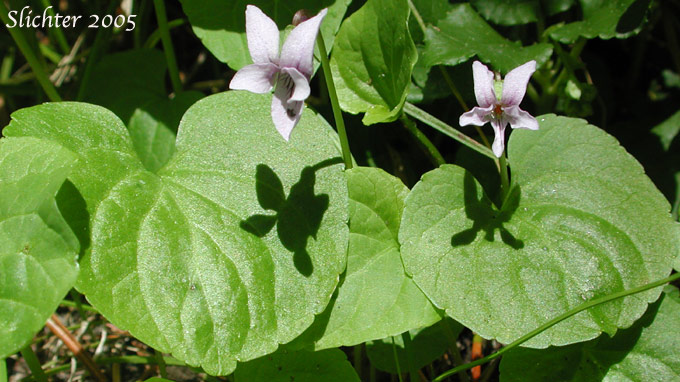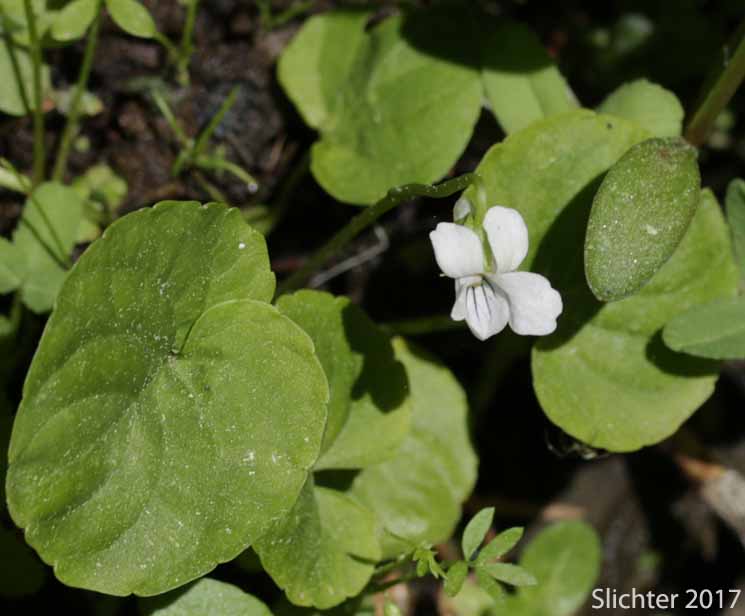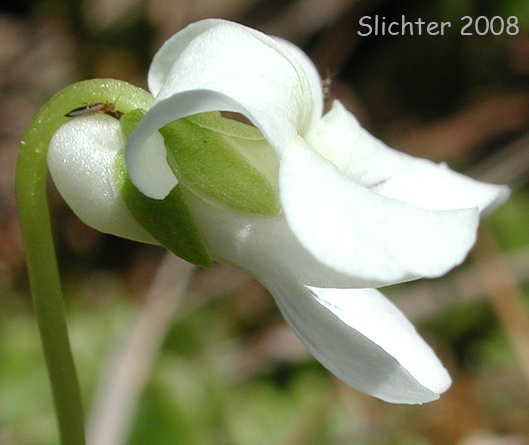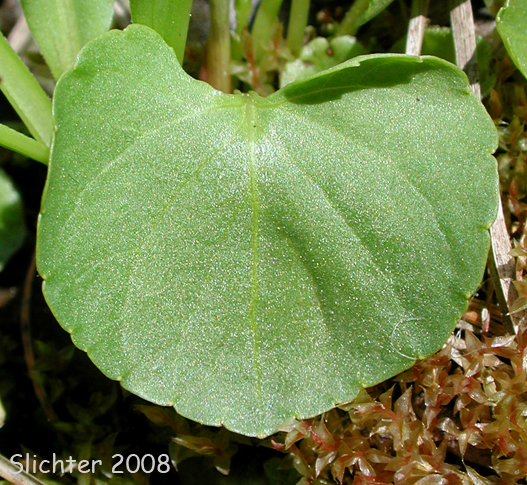[The Violet Family East of the Cascade Mountains of Oregon and Washington]
Marsh Violet
Viola palustris

The photo above shows the leaves and flowers of marsh violet as seen along Morrison Creek at the Crofton Ridge Trailhead on the southern slopes of Mt. Adams.........June 19, 2005.
Characteristics:
Marsh violets are perennials with slender rhizomes,
creeping stolons, and flower stalks which are leafless. The flower stalks may
be up to 15 cm high. The leaves are all basal, heart or kidney-shaped (See photos.),
and 2.5-3.5 cm wide. The leaves are edged with rounded teeth.
The flowers are 10-13 mm long and either white
or lavender or violet. The lower 3 petals are typically penciled with purple
or even greenish lines.
Habitat:
Marsh violet may be found in moist meadows, sphagnum
habitats, and along streambanks. It may be found on wet to very wet soils, and
may be found in wet temperate, cool temperate, or boreal climates. It is not
tolerant of shade.
Range:
Marsh violet may be found from British Columbia
south to California, east in Canada to Labrador, and in the United States, east
to the Rocky Mts..

A marsh violet blooming in Lodgepole Creek along the Line Butte Trail #807 on the southern slopes of Lookout Mountain, Ochoco National Forest.........June 22, 2017.

This photo shows a close-up frontal view of the flower of marsh violet as seen along forest road #4030 on the eastern slopes of Mt. Misery in the Umatilla N.F. of southeastern Oregon........July 7, 2008.

This photo shows a close-up sideview of the flower of marsh violet as seen along forest road #4030 on the eastern slopes of Mt. Misery in the Umatilla N.F. of southeastern Oregon...........July 7, 2008.

This photo shows a close-up of the leaf of marsh violet as seen along forest road #4030 on the eastern slopes of Mt. Misery in the Umatilla N.F. of southeastern Oregon...........July 7, 2008.
Paul Slichter